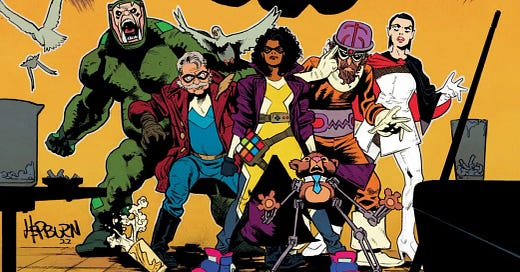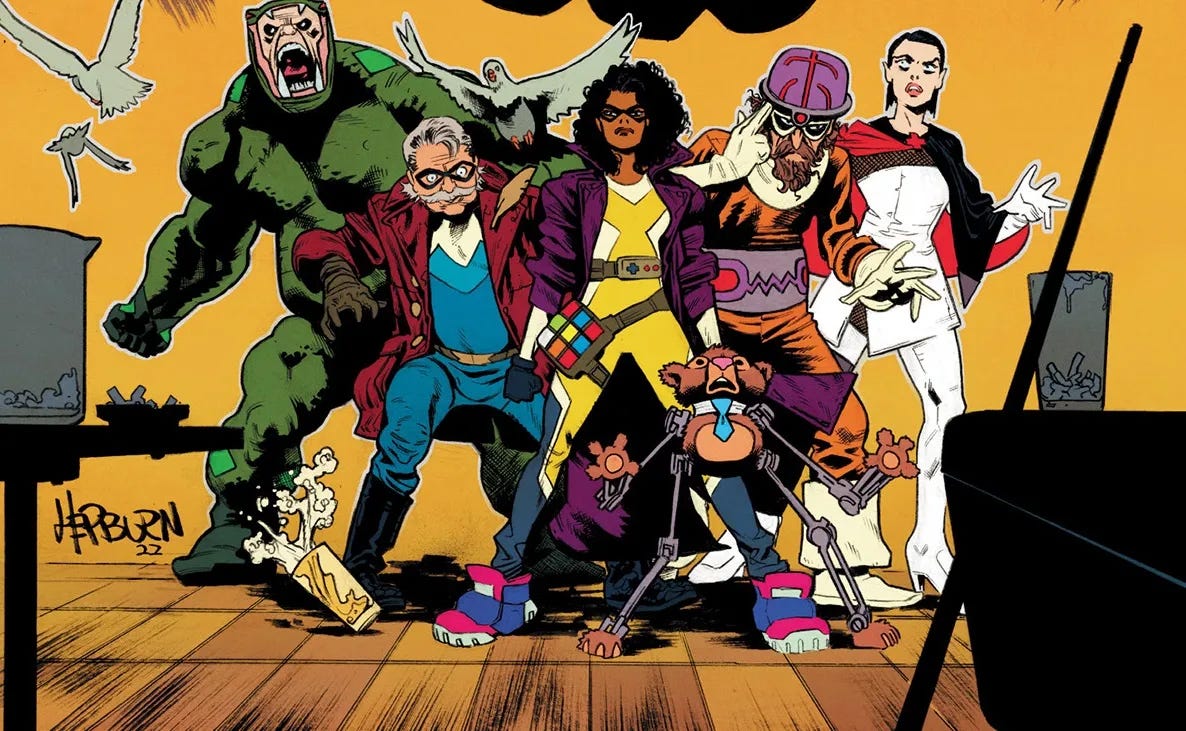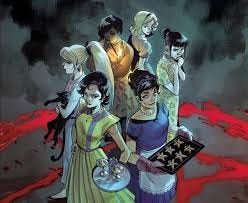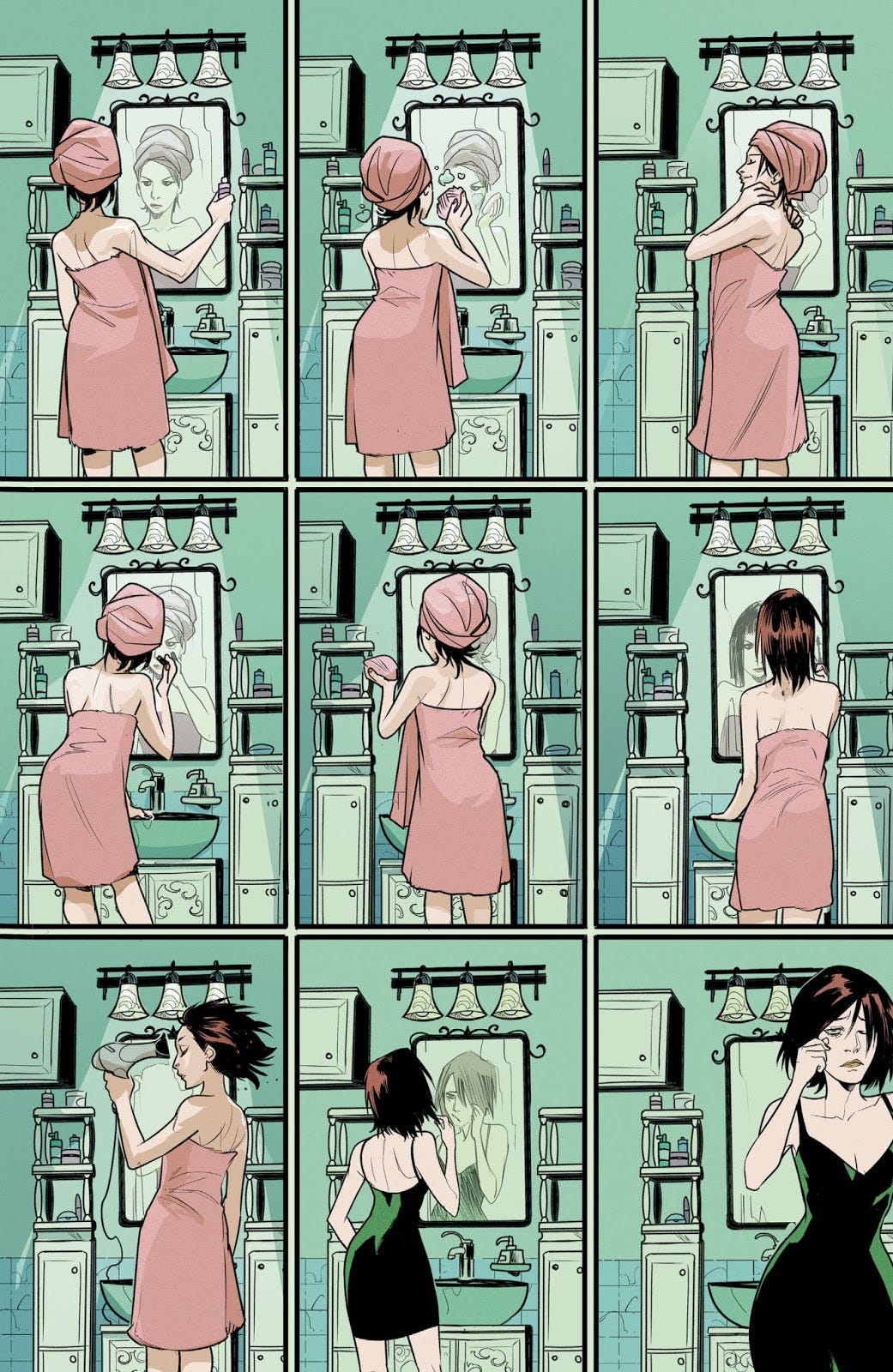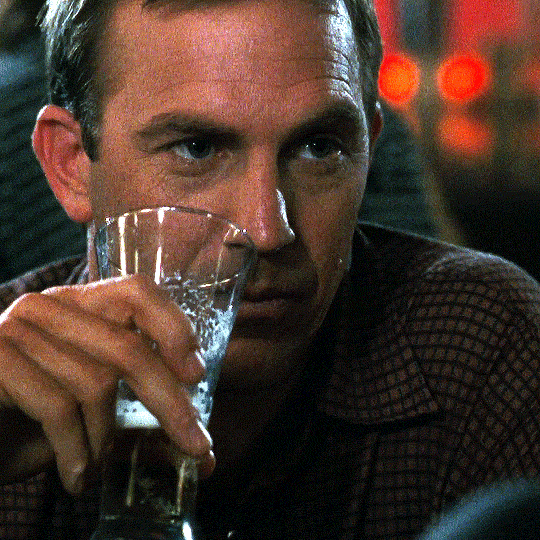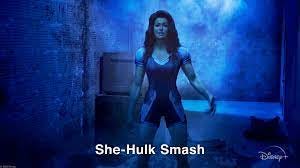Going South
I’m headed to San Diego Comic Con this week! This will be my first trip back to SDCC since 2019, when DC Comics premiered by book Hex Wives. Which, by the way, is available in trade paperback, if you’re curious about how my brain works.
I always have a great time when I go to Comic Con, and I always have a great time when I don’t go to Comic Con. So, prepared as I was to not attend this year, I was flattered to be asked by my friends Jordan Blum and Patton Oswalt to moderate the panel celebrating their terrific comic Minor Threats. The other guests on this panel are some comic book all-stars, including James Tynion IV (Something Is Killing the Children; The Oddly Pedestrian Life of Christopher Chaos), Jeff Lemire (Sweet Tooth; Black Hammer), and more writers and artists of whom I am a big fan! Here’s the info:
Comic Con should be really interesting this year. With the studios and most actors sitting out promotions due to the strike, SDCC may really be about—gasp!—comic books. This is exciting.
I miss writing comics, and while I’ve talked with a few editors over the past couple of years about doing some mini-series or graphic novels, nothing has yet panned out. Which is a bummer, but that’s the nature of any creative business.
What I’ve missed about writing comics isn’t the actual making of a product, though that is satisfying. It’s that there are so few people involved in the making of a comic that every step feels like a true and immediate collaboration. Writing Hex Wives, my closest collaborators were the artist Mirka Andolfo, colorist Marissa Louise, and our editors, Molly Mahan and Maggie Howell, at DC/Vertigo. All of these people were incredible collaborators, bringing perspective and suggestions that made for a really strong book that we’re all proud of.
This recurring nine-panel grid was my jumping off point for the series, and Mirka and Marissa gave it depth and brought it to life even more beautifully than I’d imagined.
Working Together
I’ve worked with my writing partner, Ben Acker, for almost 20 years, and that has definitely given us an advantage in our creative process and output. There is always someone to bounce ideas off of or to offer solutions to story problems. But we have writers’ rooms in this business because more good brains are more valuable than one or two. Right now, Acker and I are working on a feature script with a friend of ours, an idea that she and I hatched just joking around in texts. Throwing a third brain into our usual dynamic has yielded tremendous results. This new script is funnier in ways that we wouldn’t necessarily be on our own, our process more streamlined, our communication clearer.
“We do want to lean into this fact that we are a hive mind,” says Dayna Lynne North (creator of The Best Man: The Final Chapters). “We are coming to this table to be collaborative.”
Katy Keene creator Michael Grassi says, “I turn to the room for everything really.” Though he was the showrunner, Grassi’s philosophy was that, “we are all in it together. And we do everything together. We break every episode together. I look to them for all of their unique perspectives and points-of-view and their smart voices and their past experiences. I look to them to make the show richer and better.”
Brigitte Hales (Epic; Once Upon a Time) distills the reason for writers’ rooms, and collaborations with executives, directors, and everyone, perfectly: “One of those people might have a wonderful idea,” is what it comes down to. “Just because you've been doing this for twenty years and you're, y’know, whoever-you-are, doesn't mean that someone else might not know exactly what you need. Sit and listen to them. If you have too much ego, then you risk losing something in your product.”
This idea, that a good idea can come from anywhere, comes up time and again in the Writers Panel podcast. It’s a generally accepted notion among professional television writers. We understand what a showrunner is. How a room can work. The value in mining experiences that are different to our own.
Which is why most of us were so, let’s say, “put off” by Yellowstone creator Taylor Sheridan’s comments in a Hollywood Reporter interview last month. You can read about it here.
The bottom line is basically this: collaborating with other writers doesn’t make you less of a writer. Not collaborating does.
Smash Subscribe Button
Below is the recording of the Q&A with the Jessica Gao (She-Hulk; Rick and Morty) from last weekend.
As expected, a terrific conversation filled with lots of great, practical advice.
If you want to give it a listen, and join our next Zoom Q&A, just upgrade your subscription now:
Keep reading with a 7-day free trial
Subscribe to Re:Writing to keep reading this post and get 7 days of free access to the full post archives.

